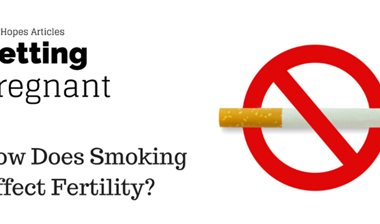POLYCYSTIC OVARIAN SYNDROME (PCOS)
Polycystic ovarian syndrome, or PCOS, is a condition in which a woman’s levels of the sex hormones estrogen and progesterone are out of balance. This leads to the growth of ovarian cysts (benign masses on the ovaries). PCOS can cause problems with a woman’s menstrual cycle, fertility, cardiac function, and appearance.
THE CAUSES OF PCOS
While the exact cause of PCOS is unknown, doctors believe that hormonal imbalances and genetics play a role. Women are more likely to develop PCOS if their mother or sister also has the condition. This condition is also associated with a family history of diabetes.
Overproduction of the hormone androgen may be another contributing factor. Androgen is a male sex hormone that women’s bodies also produce. Women with PCOS often produce higher-than-normal levels of androgen. This can affect the development and release of eggs during ovulation. Excess insulin (a hormone that helps convert sugars and starches into energy) may cause high androgen levels.
SYMPTOMS OF PCOS
Common PCOS signs and symptoms include the following:
- Irregular menstrual periods—Menstrual disorders can include absent periods, periods that occur infrequently or too frequently, heavy periods, or unpredictable periods.
- Infertility—PCOS is one of the most common causes of female infertility.
- Obesity—Up to 80% of women with PCOS are obese.
- Excess hair growth on the face, chest, abdomen, or upper thighs—This condition, called hirsutism, affects more than 70% of women with PCOS.
- Severe acne or acne that occurs after adolescence and does not respond to usual treatments
- Oily skin
- Patches of thickened, velvety, darkened skin called acanthosis nigricans
- Multiple small cysts on the ovaries
INSULIN RESISTANCE
Insulin resistance is a condition in which the body’s cells do not respond to the effects of insulin. When the body does not respond to insulin, the level of glucose in the blood increases. This may cause more insulin to be produced as the body tries to move glucose into cells. Insulin resistance can lead to diabetes mellitus. It also is associated with acanthosis nigricans.
HIGH LEVELS OF ANDROGENS LEAD TO
When higher than normal levels of androgens are produced, the ovaries may be prevented from releasing an egg each month (a process called ovulation). High androgen levels also cause the unwanted hair growth and acne seen in many women with PCOS.
IRREGULAR MENSTRUAL PERIODS LEAD TO
Irregular menstrual periods can lead to infertility and, in some women, the development of numerous small cysts on the ovaries.
THE HEALTH RISKS FOR WOMEN WITH PCOS
PCOS affects all areas of the body, not just the reproductive system. It increases a woman’s risk of serious conditions that may have lifelong consequences.
Insulin resistance increases the risk of type 2 diabetes mellitus and cardiovascular disease. Another condition that is associated with PCOS is metabolic syndrome. This syndrome contributes to both diabetes and heart disease.
Women with PCOS tend to have a condition called endometrial hyperplasia, in which the lining of the uterus (the endometrium) becomes too thick. This condition increases the risk of endometrial cancer.
AVAILABLE TREATMENTS FOR WOMEN WITH PCOS
A variety of treatments are available to address the problems of PCOS. Treatment is tailored to each woman according to symptoms, other health problems, and whether she wants to become pregnant.
WHEN COMBINED HORMONAL BIRTH CONTROL PILLS ARE USED TO TREAT WOMEN WITH PCOS
Combined hormonal birth control pills can be used for long-term treatment in women with PCOS who do not wish to become pregnant. Combined hormonal pills contain both estrogen and progestin. These birth control pills regulate the menstrual cycle and reduce hirsutism and acne by decreasing androgen levels. They also decrease the risk of endometrial cancer.
THE EFFECT OF WEIGHT LOSS ON WOMEN WITH PCOS
For overweight women, weight loss alone often regulates the menstrual cycle. Even a small weight loss of 10–15 pounds can be helpful in making menstrual periods more regular. Weight loss also has been found to improve cholesterol and insulin levels and relieve symptoms such as excess hair growth and acne.
INSULIN-SENSITIZING DRUGS THAT HELP TREAT WOMEN WITH PCOS
Insulin-sensitizing drugs used to treat diabetes frequently are used in the treatment of PCOS. These drugs help the body respond to insulin. In women with PCOS, they can help decrease androgen levels and improve ovulation. Restoring ovulation helps make menstrual periods regular and more predictable.
INCREASING THE CHANCES OF PREGNANCY FOR WOMEN WITH PCOS
Successful ovulation is the first step toward pregnancy. For overweight women, weight loss often accomplishes this goal. Medications also may be used to cause ovulation. Surgery on the ovaries has been used when other treatments do not work. However, the long-term effects of these procedures are not clear.




